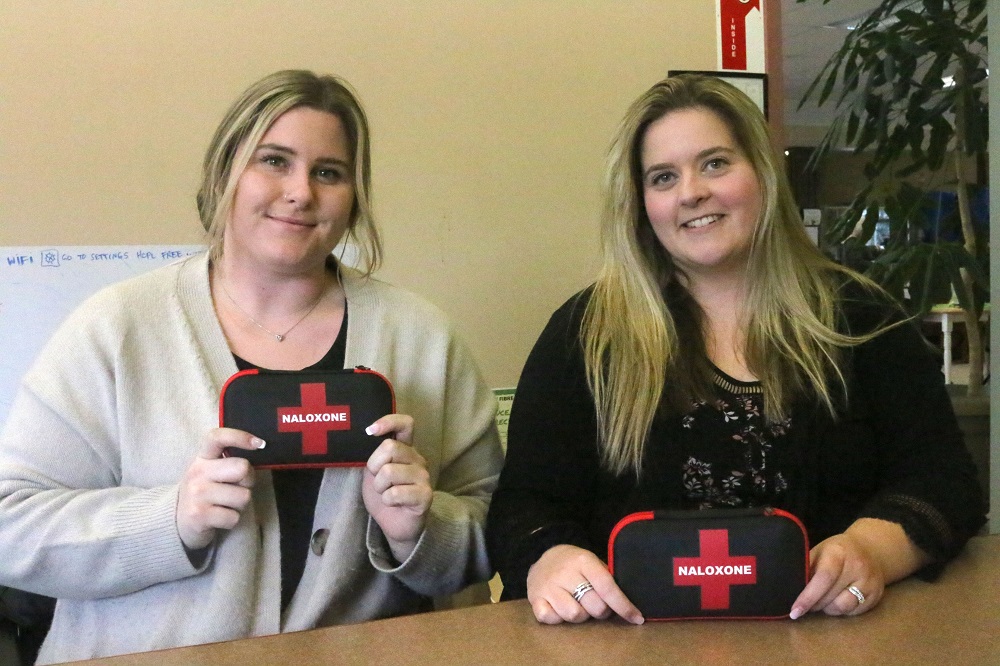The Haliburton County Chamber of Commerce is partnering with the John Howard Society (JHS) on a new community engagement program designed to reduce stigma around mental health and addiction.
Launched in January, the initiative has been well received over its first few months according to Natasha James, an outreach worker with JHS. Successful events have been held in Haliburton in January and Minden in March, with James leading seminars about what drug use really looks like in Haliburton County.
“This is a bit of a different approach for us – we’re trying to get different views and different people together from different workplaces and parts of the community to let them know the reality of our situation. Opioid use is rampant here… it’s to the point now that it’s no longer a crisis, it’s a catastrophe,” James said, noting the key difference being a crisis can end, whereas a catastrophe is much more long-term. “That’s where we’re at right now.”
Through the society’s Mapping a Plan (MAP) program, James provides harm reduction and addiction support to around 30 people in the Highlands annually.
“We are helping these people to create goals around their substance use journeys. We recognize that might not mean abstinence; it could mean keeping them safe while they are using,” she said. “That can only come with greater education.”
James said she provides training around safer substance use and the administration of naloxone – a drug that temporarily counteracts the effects of an opioid overdose. Naloxone can keep people alive for up to 90 minutes following an overdose. She said JHL also runs a needle exchange and disposal program.
A large part of the community training across the first two sessions has centred on the importance of naloxone, and trying to make people feel more comfortable responding to an opioid overdose. James said complimentary Narcan – the brand name of naloxone – kits were offered to participants.
Kirstley Dams, community manager at the chamber, felt it was important to partner with JHS on the training. She said many of the participants have been local entrepreneurs, who could see many benefits from taking part.
“We know that issues such as substance use disorders and mental health stigmas are directly correlated to the local economy and unemployment. To help our businesses in hiring and training, it’s critical that they have a deeper understanding of the problems facing potential employees and the community at large,” she said.
“The feedback so far has been all positive, which is encouraging. We’ve heard from almost all attendees that they were able to identify their own bias and felt much less intimidated around the topic of substance misuse.”
Dams said many businesses in the area are still struggling to find workers. She believes programs like this, and a change in mindset for some local entrepreneurs can help to alleviate the problem.
“These past couple of years have magnified a lot of the issues that were able to exist in secret before. This means we need employers who aren’t judging a potential employee by their mental health, or even their work experience,” Dams said. “Most jobs can be taught to a willing employee, but age, experience and education have long been a barrier for these eager workers.
“If employers remove some of these prerequisites, they will find a much larger pool of employees who are ready to learn, work and grow in the County’s labour market,” she added.
A third community training session will be held in Haliburton in May. For more information, contact James at njames@ jhscklh.on.ca, or visit johnhoward.on.ca/ kawartha.





